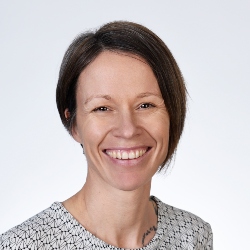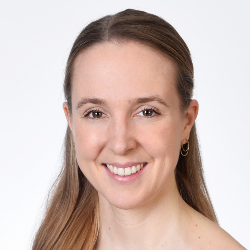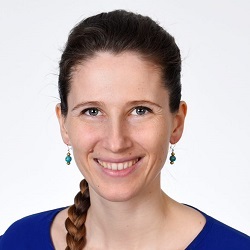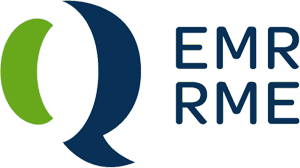Post-partum perineal rehabilitation in Lausanne: regaining confidence after childbirth
A changing body, rebuilding the perineum
After childbirth, a woman's body needs time to recover. The perineum, stressed during pregnancy and stretched during birth, is often weakened. Even in the absence of a tear or episiotomy, these muscles can lose tone, sensitivity and control.
This looseness sometimes results in urine leakage, a feeling of pelvic heaviness or discomfort during intercourse. These problems are common, but not talked about enough. Many young mothers think they'll go away "on their own", or don't dare talk about them.
Yet there is a simple, effective solution: post-partum perineal rehabilitation. It helps restore strength, coordination and awareness of the pelvic floor. In Lausanne, it is offered at the Centre Philae, in a respectful setting adapted to young mothers.
(source: NIH - Postpartum Perineal Care)
Why do perineal reeducation after baby?
During pregnancy, the weight of the baby exerts continuous pressure on the perineum. During childbirth, these muscles become distended and sometimes damaged. This can impair their function, even several months later. This phenomenon affects all women, including those who have given birth by caesarean section.
Post-partum rehabilitation is not reserved for severe cases. It is recommended as a preventive measure, starting 6 to 8 weeks after delivery, as soon as healing permits. The aim is to prevent the onset of long-term problems such as incontinence, prolapse or chronic pelvic pain.
Regaining control of the perineum also means regaining a solid base for the abdominal muscles, improving posture and breathing. It's an all-round support for post-natal recovery.
(source: PubMed - Postnatal Pelvic Floor Rehab)

How does a post-partum rehabilitation session work?
The first step is a personalized assessment. The therapist assesses the tone of the perineum, the presence of pain, leakage or signs of weakness. The approach is always gentle, progressive and adapted to the patient's experience.
Sessions can include: Kegel contraction exercises, biofeedback, internal manual techniques, or gentle electrostimulation in the case of very hypotonic perineum. Respiratory work is often included. It reconnects the diaphragm and pelvic floor.
The aim is to strengthen without forcing. Regularity is more important than intensity. And the exercises can also be done at home, following simple, effective instructions.
(source: Cochrane Review)
What benefits can you expect?
Post-partum perineal reeducation helps prevent urine leakage and organ descent. It also encourages a more serene return to intimacy, often dreaded after childbirth. Some women even discover new sensations, thanks to a better toned, more aware perineum.
But the benefits aren't just physical. This time for yourself, after weeks focused on the baby, also allows you to reconnect with your body. It's a time to refocus, regain confidence and rediscover your bodily bearings.
A meta-analysis shows that rehabilitation significantly reduces the risk of persistent incontinence one year after childbirth, especially when well supervised (source: PMID 31830836).
A team committed to your post-natal well-being
At Centre Philae, post-natal care is provided by a team of physiotherapists trained to support women during pregnancy and after childbirth.
We regularly discuss our practices and take part in ongoing training courses to enhance our skills and keep abreast of the latest recommendations. This teamwork enables us to offer coherent, personalized and progressive care to help you regain full confidence in your body after birth.
Solen is appreciated for her gentleness and empathy. Attentive and present, she adjusts each session to your needs and progress. Complete, she remains available for patients who have already been treated and for recommendations (doctors, midwives, patients...).
Clara offers a warm, committed presence. Always on the lookout for ways to improve, she doesn't hesitate to network with other therapists and supports you every step of the way.
Amélie, dynamic and attentive, accompanies each patient with precision and commitment. Committed, she finds solutions and encourages you throughout your sessions.
Géraldine welcomes you with calm, a smile and kindness. Her calm, respectful presence provides a reassuring framework for serene care. As a young mother, she tactfully understands what's at stake at this stage of life.
Each therapist adapts to your pace. Sessions take place in a calm, confidential and caring environment.
You can start your follow-up as early as 6 to 8 weeks after giving birth. Proper rehabilitation is a valuable investment in your future health, comfort and vitality.






